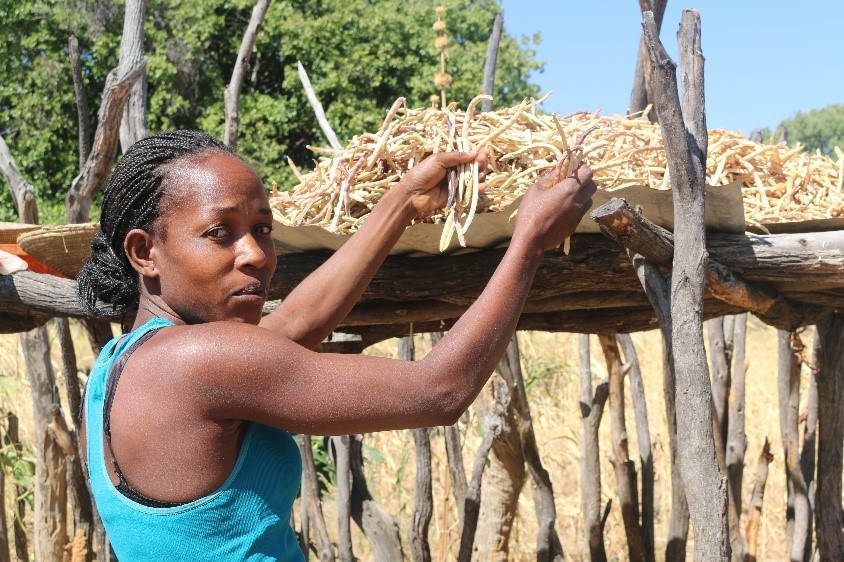Seeds distribution a lifesaving mechanism for malnourished children

Author
Eunice Lopes Communications and Program Officer
Angola faced a severe drought that significantly impacted the lives of thousands of people. Large parts of Southern Angola have observed abnormal dryness as it has hardly rained during the last four years. Last year an estimated 1.4 million people were affected by the drought. Cunene Province experienced very low staple crop production levels and food stocks at farms were almost non-existent.
Cunene province has a population of 990,087 inhabitants of whom 185,108 are under five years. World Vision Angola, with the financial support of the European Commission’s Humanitarian Aid and Civil Protection department (ECHO), is implementing and emergency food and nutrition security project in the municipalities of Cuanhama, Curoca, and Cuvelai. With the current situation of food insecurity, crop losses are expected and as a result, an increase in the level of malnutrition of children under five. The Therapeutic food provided by the project is far from sufficient to cover all the needs of malnourished children and their family. Also the financial crisis in Angola has negatively impacted the funding availability for the procurement of therapeutic supplies by the Ministry of Health.
The Immediate action of the program focusses on supporting farmers to recuperate from the drought of the past few years through the introduction of improved short cycle drought resistant cereal and bean varieties as well as vegetable seeds. As a Result of this action World Vision has distributed seeds of millet, Sorghum, Cowpea, Pigeon Pea and vegetables to mothers of malnourished children for multiplication and household production in order to improve the current food and nutritional situation in the province.
Cuanhama Municipality is one of the areas covered by the project in which the signs of scarcity of rain are visible. Many hectares of land are dry and are not fit for crop production. In a wood homemade house nine people live together including the grandmother, three daughters and five grandchildren. Due to the lack of food and poor eating habits, which can imped children of getting the nutrients from food, this family had to manage four malnourished children getting weaker one after the other. As the children’s mothers work, the grandmother is the one taking care of them during the day, she was in despair because she did not know how to deal with the situation. When these children join the program they were having severe diarrhea and
cough and the grandmother said that after few days she could see the improvement as the children were too weak firstly but after they were playing again and eating normally. This family has beneficiated from the improved seeds distributed by the project. “Due to the lack of rains we saw our whole plantation get damaged by the drought. We have survived our entire lives on crops production and losing everything it is heart breaking and the little food we had remaining was already finished. We would be starving by now, but with this seed we received we will be able to have food again. This seed will save our lives”. Says the family
They say that since the seeds that have short production cycle the family will have food for a long time and for sure their children will not be sick and malnourished. They also mentioned the fact that they can reproduce the seed and they can also sell it to generate some income.
World Vision’s project is currently targeting mothers and caregivers of children under-five years with Moderate Malnutrition and Severe Malnutrition. Since mothers are typically the ones who take care of the family and children, the agriculture component of the project directly benefits these mothers with improved seeds with the aim of increasing availability and improving consumption of food at the household level. In addition, the project is working closely with community leaders and local government authorities to improve participation of both men and women, the inclusion of elder people, the project is including grandmothers during nutrition education sessions and home visits as well.
Learn more about the work World Vision is doing to enable families to provide for the needs of their children through our Resilience and Livelihood programmes in Angola.



